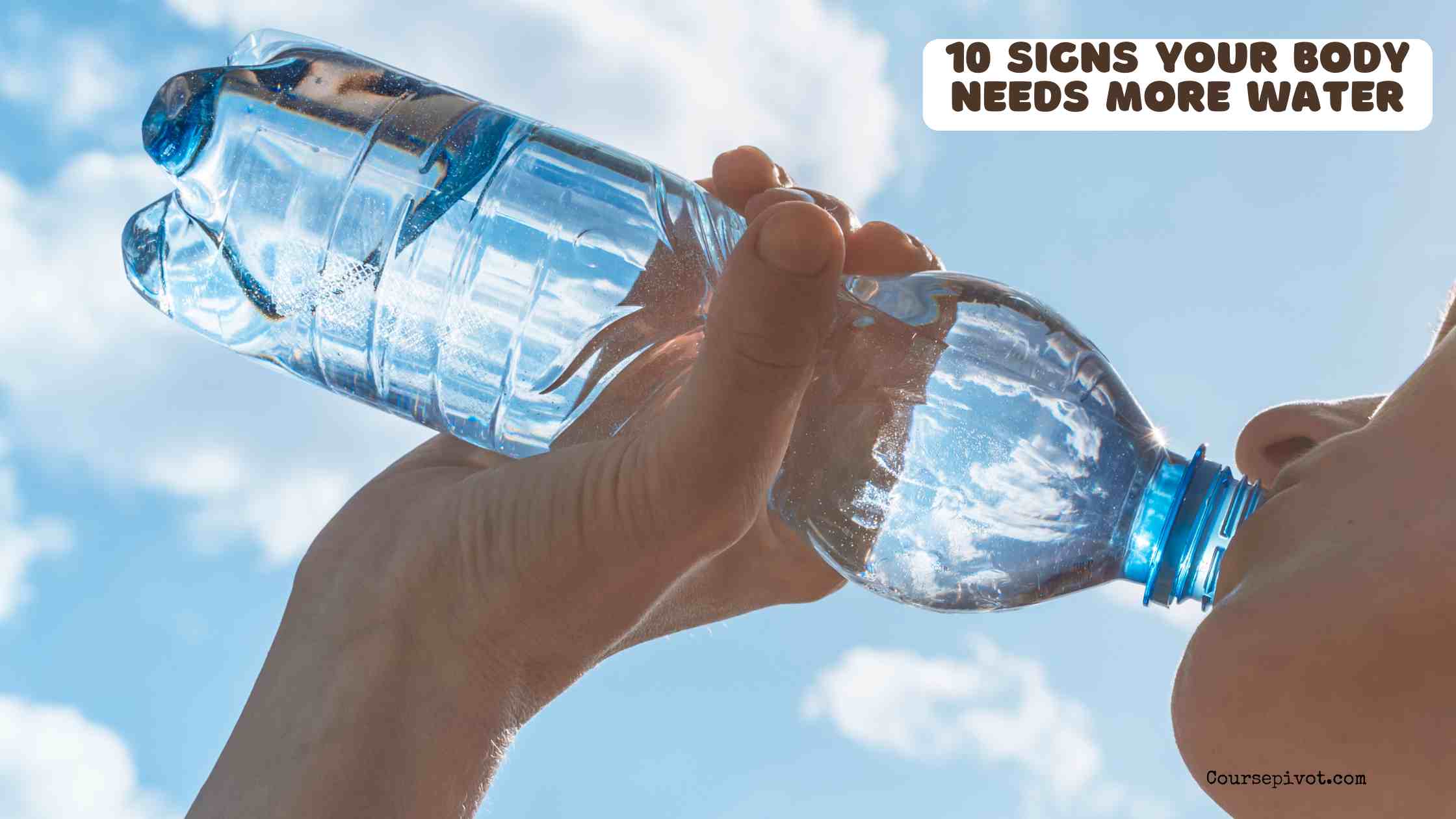
Are You Drinking Enough Water Every Day? How to Know
Ever feel sluggish or foggy and wonder why? Could it be that your body is quietly begging for more water? Staying hydrated is critical for health, yet many overlook subtle cues their body sends when it’s parched. This blog explores 10 signs your body needs more water, helping you recognize when hydration needs a boost.
Table of Contents
Understanding these signals can improve your energy, focus, and overall well-being. From headaches to dry skin, these signs are your body’s way of waving a flag. Let’s dive into the telltale indicators and why addressing them matters.
1. Persistent Fatigue and Low Energy
Feeling tired despite a good night’s sleep might point to dehydration. Water fuels cellular function, and insufficient hydration slows energy production. Studies suggest even mild dehydration—1-2% body weight loss—can reduce energy by 20%. If you’re dragging through the day, try sipping water consistently.
2. Frequent Headaches
Dehydration often triggers headaches or migraines. Lack of water reduces brain hydration, causing tension and discomfort. Research from health journals notes that 40% of headache sufferers find relief by drinking more water. If headaches persist, hydration could be a simple fix.
3. Dry Mouth and Thirsty Feeling
A dry, sticky mouth or constant thirst is an obvious dehydration signal. Your body produces less saliva when water levels drop, leading to discomfort. Unlike bar charts showing static data, a histogram of saliva production would reveal a sharp decline with dehydration. Keep a water bottle handy to address this quickly.
4. Dark or Infrequent Urine
Urine color and frequency are hydration barometers. Dark yellow or amber urine often indicates insufficient water intake, as kidneys concentrate waste. Per urology studies, well-hydrated individuals produce pale yellow urine 6-8 times daily. Check your output to gauge hydration needs.
| Urine Color | Hydration Status |
|---|---|
| Pale yellow | Well-hydrated |
| Dark yellow | Mild dehydration |
| Amber | Severe dehydration |
5. Dry Skin and Lips
Flaky skin or chapped lips can scream dehydration. Water maintains skin elasticity, and low intake reduces moisture. Dermatology data shows dehydrated skin loses 15% of its suppleness. Moisturizers help, but drinking water addresses the root cause.
6. Muscle Cramps or Spasms
Frequent muscle cramps, especially during exercise, may signal low hydration. Water regulates electrolyte balance, and dehydration disrupts muscle function. Sports science reports a 25% increase in cramping risk when dehydrated. Stretch and hydrate to ease and prevent spasms.
7. Poor Concentration and Brain Fog
Struggling to focus? Dehydration impairs cognitive performance, reducing alertness by up to 30%, per neuroscience studies. Water supports brain function, carrying oxygen to cells. If your mind feels cloudy, sipping water might clear the haze.
8. Increased Hunger or Cravings
Sometimes, thirst masquerades as hunger. Dehydration can trigger cravings, especially for sweets, as the body seeks quick energy. Nutrition research indicates 60% of people confuse thirst with hunger. Try drinking water before snacking to test this.
9. Constipation or Digestive Issues
Water keeps digestion smooth by aiding nutrient breakdown and waste movement. Low hydration can cause constipation, with studies showing a 20% higher risk in dehydrated individuals. A histogram of bowel movement frequency would show a clear dip without enough water. Increase intake to stay regular.
10. Rapid Heartbeat or Dizziness
Dehydration reduces blood volume, making your heart work harder. This can cause a racing pulse or dizziness, especially when standing. Medical data links 2% dehydration to a 10% heart rate spike. If you feel lightheaded, hydrate and rest promptly.
Why It Matters: Hydration’s Impact on Daily Life
Ignoring these signs can sap your vitality, lower productivity, and even risk health complications. Proper hydration supports everything from mood to organ function, with studies showing a 15-20% performance boost in well-hydrated individuals. Recognizing these cues empowers you to act before minor issues escalate.
In professional settings, dehydration-related fatigue or focus loss could hinder performance. For students, it might mean struggling through exams. Staying hydrated isn’t just self-care—it’s a performance enhancer for life’s demands.
Practical Tips for Staying Hydrated
To combat these signs, aim for 8-10 cups of water daily, adjusting for activity or climate. Carry a reusable water bottle for easy access. Infuse water with fruits like lemon for flavor if plain water bores you. Set reminders or use apps to track intake, ensuring consistency.
Eat water-rich foods like cucumbers or watermelon, which contribute 20% to hydration, per nutrition data. Monitor urine color as a quick check. These habits can keep dehydration at bay, enhancing your health.
Key Takeaways
Your body sends clear signals—fatigue, headaches, dry skin, and more—when it craves water. Recognizing these 10 signs helps you act swiftly, preventing discomfort and boosting performance. Hydration isn’t just about quenching thirst; it’s about fueling your body’s potential.
By integrating simple habits like regular sips and water-rich foods, you can maintain optimal health. These small changes yield big rewards, from sharper focus to smoother digestion. Stay attuned to your body, and keep hydration first.
Cite this article
You can copy and paste your preferred citation format below.
Martin, L. & Arquette, E.. (2025, July 20). Are You Drinking Enough Water Every Day? How to Know. Coursepivot.com. https://coursepivot.com/blog/are-you-drinking-enough-water-every-day-how-to-know/



